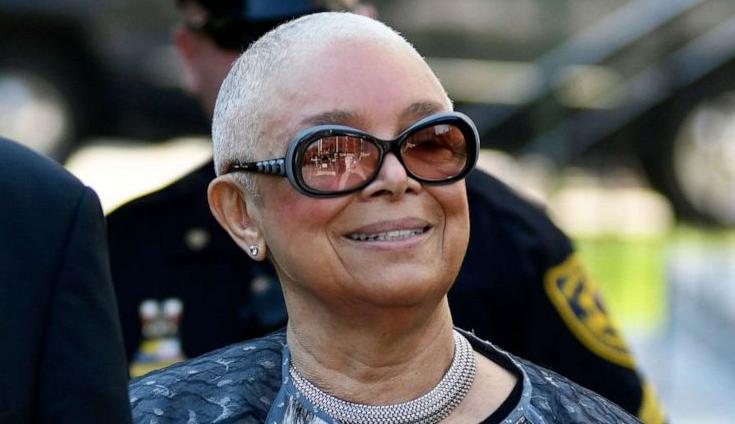This article – by Joseph Evans, Ph.D., Dean, Morehouse School of Religion – was originally published HERE at ReelUrbanNews.com.

*Changing Our Narrative
“When the rate of return on capital exceeds the rate of growth of output and income, as it did in the nineteenth century and seems quite likely to do again in the twenty-first, capitalism automatically generates arbitrary and unstainable inequalities that radically undetermined the meritocratic values on which democratic societies are based.”
In our opening epithet the avant-garde economist, Thomas Piketty describes what is occurring on the Democratic Party’s primary debate stage namely … the American public must confront the future which simply is “Capitalism versus Democracy.”
Expressed another way, “if this relationship fails to exist [which is a fair balance between a few people with money and the many people without it], there is little control over capitalism, which is another way to describe personal interest.
Personal interest here points toward those who overwhelmingly have access to investment capital, and therefore the general welfare of societies and their sustainability are gravely threatened.” This seems to frame what is underneath the political debate on the Democrats’ stage.

Of course, we have been taught that capitalism cannot function without a democracy. Capitalism is considered to be “a combination of open markets and industrial corporations functioning as independent institutions and controlling autonomous pools of capital.”
In short, there must be free ideas for free markets and liberal policies in order for entrepreneurs to gain access to capital which is used to build commerce. Commerce is the taproot for acquiring income and wealth. However, can the twenty-first-century market-based economy function as it did in our twentieth-century market?
These questions are meant to stimulate our interest in the outcome. We must decide whether there is a need for specific interventions that address current economic challenges which are income and wealth inequities. We must determine whether these growing inequities mean that our society needs to make deliberate and targeted people group adjustments to our market norms. Indeed these questions are difficult to answer. Still, they are necessary in order to provide a broader framework and focus for what is at stake in the 2020 presidential election. Moreover, these questions are asked to help us understand the carefully crafted political narrative that is underneath the pejorative so-called surface rhetoric.

Now that former New York Mayor, Michael Bloomberg has entered the Democratic presidential race, we can see this clearly. There is no doubt that he is a robust representation of capitalism. As an unapologetic capitalist, he too is an unapologetic proponent of the current economic status quo. He has built an economic empire that dwarfs that of another New Yorker, the current occupant of the White House. With his eyes focused on the people’s house, Bloomberg asserts, adroitly, that he alone can defeat the rogue president. In other words, he whispers that his income and wealth are necessary because it matches the income and wealth that supports his would-be opponent. Without his income and wealth, he intimates, the current president cannot be defeated. There is no question that Bloomberg represents capitalism.

On the other hand, the United States Senators Bernie Sanders and Elizabeth Warren are proponents for democracy and they are candidates for the Democratic presidential nomination. Although the two senators differ slightly on policy solutions, they are a clear representation of democracy. They do not agree with Bloomberg’s economic philosophy. Instead, they provide a defense of democracy. Sanders and Warren understand that public interest must exceed that of private interest – otherwise, democracy can no longer exist.
Their argument is summarized here: without deliberate interventions or reinvestment in our lower economic classes, which are predominately black and brown people and poor whites, (the canaries in the mine); eventually, fairer people will be not be considered equal participants and citizens in our society. This brings us to this notion. What does twentieth-first century interventions look like in real terms? We believe it is a system that protects democratic rights.

Socialism protects democratic rights then and in this way describes the presidential political debate (and in barbershops and hair salons). It is an organized method to distribute income and wealth into the public square (space). The public square informs and protects public interest from the tyranny of private interest. Public interest then in the public square is to retain competitive public education and provide tuition waivers for deserving students at public state colleges and universities; it assures access to affordable healthcare; it demands criminal justice reform; advocates for fair immigration laws that include people of African descent who come to these shores from the diaspora.
In support of this claim, we turn again to Thomas Piketty who has conducted and completed a study about the different factors that affect major markets. In general, he found that income and wealth distribution is a political decision. Therefore free markets cannot be reduced to economic determinism. In other words, the “Bloomburgs” of the world believe that markets behave in a kind of natural way and should be permitted without interference. This is a fair and broadly accepted principle that points toward a definition of capitalism. Informed capitalists know better, however. They know there are many interventions in our market – based economy. We must remember that politicians are capitalists too.
Indeed we cannot count all of the politicians and pundits who affirm this notion. The notion that markets should be allowed to function without human (political) interference. Of course, markets are affected by other types of interferences and obstacles. Those inferences can be natural disasters, biological epidemics such as the Coronavirus that apparently began in China, terrorist attacks and wars to name a few. These kinds of interference and obstacles trigger interventions such as government aid to flood and earthquake victims alongside domestic and international interventions necessary for finding anti-virus antidotes. There are other interventions such as the Federal Reserve Board that determines interest rates and policy positions that advocates or opposes certain amounts of liquidity in the market – so in short, the United States does not have pure – free markets.

Thus there is no pure global free-market economy in the world which includes the United States. We have mechanisms in place to interfere with unforeseen challenges and obstacles. What is clear, our social programs or socialism serve an important purpose in our society. The income and wealth gap is as dangerous as the Coronavirus. These are gravely pale and ashen times and the only antidote that we see is our fragile right to vote. There must be a decision made by American citizens whether capitalism is gone awry which protects personal interest or the imperfect democracy the fragile buffer between those who can literally purchase the world.

Dr. Evans is the author of “Reconciliation And Reparation Preaching Economic Justice.
Dr. Evans contributes ecumenical and social perspectives to ReelUrbanNews.com.

We Publish News 24/7. Don’t Miss A Story. Click HERE to SUBSCRIBE to Our Newsletter Now!





